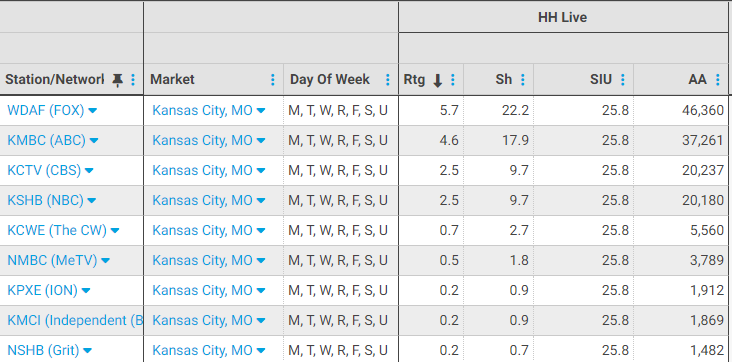
Principal – DW Creative Marketing
Dave Wieser is Principal of DW Creative Marketing, whose mission is to “Help the Doers create their legacy.” His career of 20+ years in the advertising and marketing industry has led to a wide range of experiential roles, including media selling, media buying/planning, marketing strategy, research, business intelligence and data analytics…
Ever wondered what happens behind the scenes to bring those engaging ads to your screens? The answer lies with media buying agencies. They’re the unseen heroes, negotiating, purchasing, and monitoring advertising space on behalf of businesses. But like any superhero, they come with their own set of strengths and weaknesses.
In this article, we’re going to delve into the pros and cons of hiring a media buying agency. We will explore the potential benefits, such as their expertise and time-saving capabilities, as well as potential drawbacks like costs and lack of control. We’ll also provide tips on how you can mitigate risks when engaging with these agencies.
Our aim is to empower you with the information as to whether a media buying agency is the right choice for your business. Let’s get started.
Advantages of Outsourcing Your Media Buying
You’re probably wondering, ‘Why should I outsource my media buying needs? We’ve narrowed the possible benefits to four key areas: negotiation, access to media, time-savings, and technology.
Negotiation Benefits of using a Media Buyer
One of the biggest advantages is expert negotiations. Media buying agencies have deep experience with how media operate, along with relationships to negotiate prices and placements that you might not be able to achieve on your own. The best buyers were once media sellers, which adds another layer of value. A comparison would be akin to having an ex-car salesperson work with the dealer on your behalf to buy a car.
The savviest of buyers will test the waters with lower rates, but they also understand potential added-value (i.e., “Free”) placements as a condition of a buy, which could include additional coverage. Added value can come in a variety of options and the best media buyers will understand the distribution opportunities for each and leverage a buy accordingly.
Increased Reach Opportunities
Another perk is simply the knowledge of the entirety of “media inventory.” Agencies have established relationships with a variety of media outlets, which gives your ads a chance to appear in more places and reach a larger audience. Half the battle here is simply knowing various media even exist! Did you know you can buy dozens of radio stations in a single shot via statewide radio networks? Extend this distribution access to numerous media vendors across both the traditional and digital spectrum and experienced media agencies can evaluate options to improve the efficacy of your investment.

Time-Savings Benefits of using a Media Buyer
One of the major time-saving benefits of using a media buyer is their role as a liaison between businesses and media representatives. Countless media representatives reach out to businesses daily, presenting various advertising opportunities. This flood of communication can be overwhelming and time-consuming for businesses, as they would need to evaluate each proposal and negotiate terms individually.
However, by employing a media buyer, businesses can offload this task, saving valuable time. Media buyers have extensive knowledge of the advertising industry and can quickly assess the suitability of different media platforms and advertising opportunities for a particular business. They have established relationships with media representatives, allowing them to efficiently communicate the business’s needs and negotiate the best terms on their behalf. By acting as the middleman, media buyers streamline the entire process, freeing up time for businesses to focus on other core activities.
Improved Buying Efficiency with Software
Partnering with a media buying agency can significantly improve buying efficiency through the utilization of media buying software and research data. These software programs, such as GaleForceMedia and comScore TV, provide access to valuable tools and information that can streamline the buying process and enhance decision-making. GaleForceMedia, for example, offers a comprehensive platform that enables agencies to plan, buy, and optimize media campaigns across various channels, providing real-time insights and performance tracking. On the other hand, comScore TV offers detailed viewership data and audience measurement metrics, allowing agencies to target their ads more effectively and make data-driven buying decisions.
Partnering with a media buying agency that utilizes advanced software can help businesses save costs by improving the efficiency of media buying processes. The software provides valuable tools and research data that enhance decision-making, resulting in more effective and targeted media buys. This improved targeting accuracy leads to better results for businesses, maximizing the return on investment and ultimately saving costs on ineffective advertising.

Potential Drawbacks of Working with Media Buying Agencies
While it’s tempting to hand off all your advertising needs to a third-party, there are certain pitfalls that might make you think twice.
When we talk transparency as it relates to a media buying agency, here is a list of issues that may pose as red flags:
- Contract Ambiguity – Brands may face transparency issues when it comes to understanding the details of their contract. This can include unclear pricing structures, hidden fees, or ambiguous deliverables. We have seen contracts structured as a percentage of the buy (most-common), split-commission, or a flat fee.
- Inadequate measurement and reporting – Brands may find it challenging to obtain transparent and accurate data on the performance of their advertising campaigns. Issues such as incomplete reporting, limited access to real-time data, or difficulty in understanding campaign metrics can arise. This is especially true if the media partner does not subscribe to ratings data and/or buying software, a major red flag when evaluating options.
- Lack of communication – The reality of a bad client/agency communication dynamic can be a major pitfall when deciding to hire an agency. Lack of communication between clients and agencies can lead to a plethora of issues that hinder progress and success. Unfortunately, it is a dynamic that plagues the industry but typically doesn’t show itself in the vetting process. Make sure to ask for referrals.
- Non-transparent media buying practices – Brands may face transparency issues related to media buying, where the agency may not fully disclose the costs and markups associated with purchasing media space. This can result in brands paying more than necessary or not having full knowledge of how their advertising budget is being utilized.
Weighing the Cost versus Benefit of Hiring an Agency
Determining whether the juice is worth the squeeze when partnering with a third-party firm can feel like a balancing act. On one side, there’s the potential for amplified brand awareness and increased sales, and on the other, the risk of being stuck in an unsatisfactory contract with hidden costs and underperformance.
Just like the tightrope walker who meticulously considers each step, it’s crucial to assess each element of the partnership carefully. According to a 2019 study by HubSpot, 52% of marketers claimed that measuring the ROI of their campaigns was their top challenge – a metaphorical gust of wind that could throw off balance.
When assessing options and costs, make sure you are crystal clear on expectations, which performance metrics you will track and the timeline. It all boils down to one question:
“We plan to budget X dollars with your agency over Y amount of time. That budget includes your fees and what we expect to pay on media/advertising expenses. With that budget and expected duration, we expect A, B, and C to happen as it relates to business outcomes. Is that a possibility or do we need to address budget, timeline, or expected business outcomes?”
This question is a “same-page” question – agencies will appreciate it and the best ones will give an honest assessment on whether it’s achievable, or if the plan needs to be tweaked. World-class agencies will even refer you to a provider that is more aligned with what the business is trying to achieve if they don’t think they can make it work..
Conclusion: Is a Media Buying Agency Right for You?
Uncovering the pros and cons of hiring a media buying agency is essential for making informed decisions about what is best for your situation. Media buying agencies serve as unseen heroes, negotiating, purchasing, and monitoring advertising space on behalf of businesses.
While they offer strengths such as expertise, time-saving capabilities, and access to media, there are also potential drawbacks like costs, lack of control, and transparency. It is important to mitigate these risks by establishing clear expectations and communication with the agency.
If you’re ready to take the next step, check out our article on How to Hire a Media Buying Agency or visit our Media Pricing page to get an instant estimate based on what services you are seeking help.
